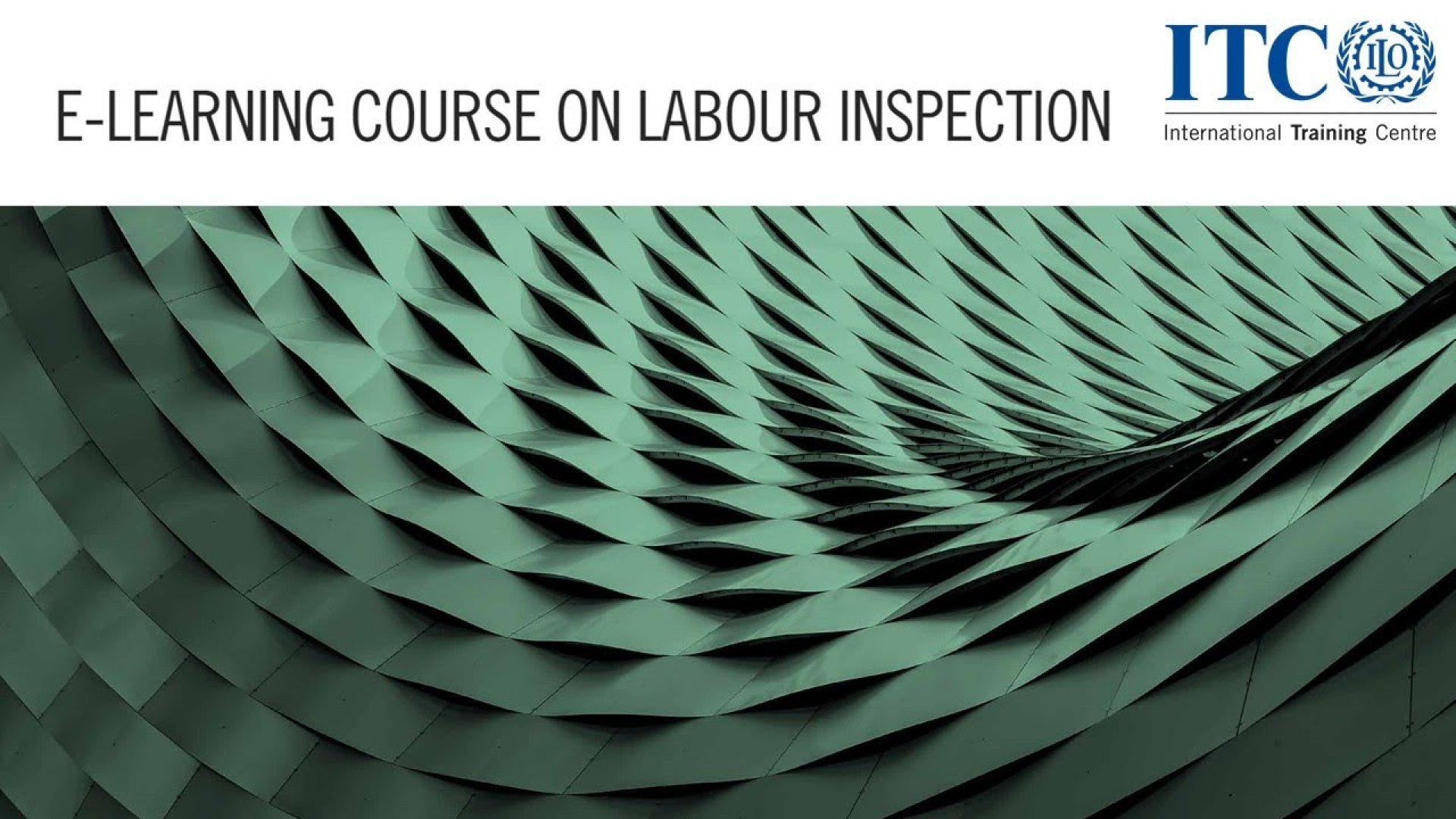E-learning Course on Labour Inspection

Photo © Adobe Stock/Samia
Online
E-learning Course on Labour Inspection
Foundations Pillar
20 July–11 September 2026
Key features
Explore interactive and egaging content levereging ITCILO digital infructure for flexible learning accessible from any location, at any time
Discover comprehensive overview of core technical aspects and essential modules in labour inspection
Move closer to obtaining the Diploma in Labour Inspection
Introduction to the course
The course will familiarize participants with the principles, functions and main characteristics of labour inspection. Participants will be able to choose from different compliance strategies and carry out a comprehensive and effective labour inspection visit relating to working conditions and occupational safety and health, applying new tools and a set of indicators to identify the employment relationship.
Who attends this course?
Labour inspectors at central or provincial level; labour inspection system managers; labour administration system officials involved in labour protection; trainers from labour administration/inspection training institutions; representatives of employers' and workers' organizations with a special interest in labour inspection; ILO officials and staff from technical cooperation projects; experts, researchers and consultants on labour-related issues.
What will I learn?
The course consists of 7 modules:
- Introduction to labour inspection: principles, functions and main characteristics;
- Strategies of compliance;
- Inspection of working conditions;
- Inspection of the employment relationship;
- Inspection of occupational safety and health;
- Labour inspection visit;
- Tools for labour inspection.
Why should I join?
At the end of the training programme participants will be able to:
- Describe the principles, functions and main characteristics of labour inspection;
- Identify the key issues to take into consideration in the preparation, conduction, and follow-up of an inspection visit;
- Describe the main issues concerning the inspection of working conditions;
- Describe labour inspection of key occupational safety and health issues;
- Explain the differences and inter-linkages between various compliance strategies;
- Apply a set of indicators to identify the employment relationship;
- Identify the applications of the main tools for labour inspection activities.
How will I learn?
This e-learning course adopts a learner-centered approach, using storytelling, scenarios, videos, and interactive activities to engage participants. Conducted entirely online in asynchronous mode, this interactive and engaging course offers leverages ITCILO digital infrustructure to offer flexible learning journey, accessible from any location, at any time. It comprises 7 modules with texts, quizzes, and assignments, supported by a tutor. Participants can learn flexibly over 8 weeks, dedicating 7.5 hours weekly, for a total of 60 hours.
Participants who successfully complete the quizzes or assignments required (one per each module) and the final exam will receive a Certificate of Achievement.
Prove your skills with a Diploma
This course is part of a Diploma programme. To achieve the Diploma, successful candidates must complete four courses within a five-year period and undertake a capstone assessment.



